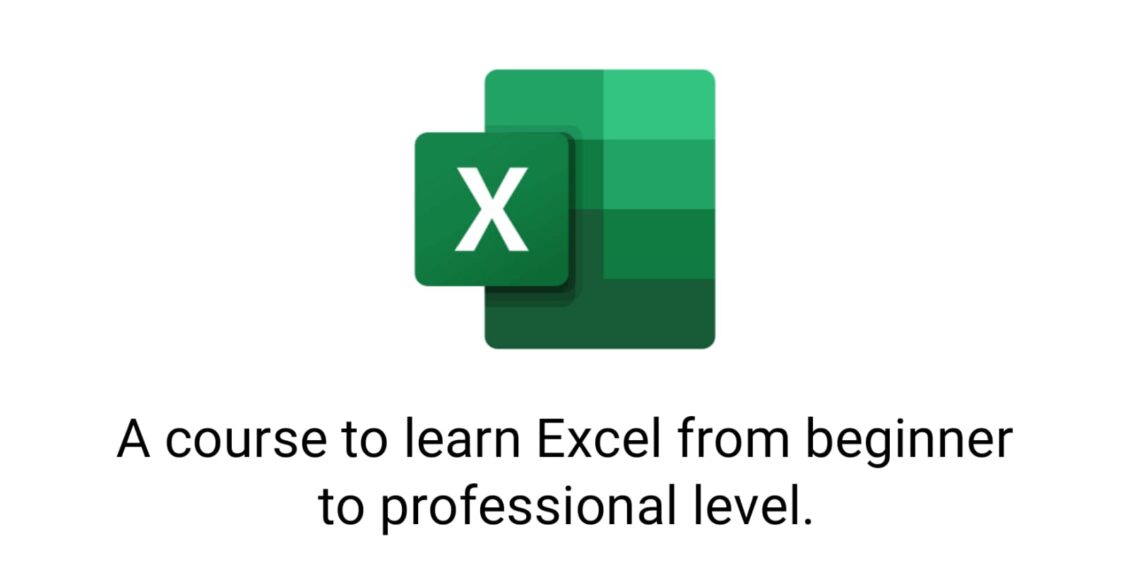A comprehensive course to learn Excel: mastering data analysis and organization with simple steps.

A comprehensive course to learn Excel: mastering data analysis and organization with simple steps.
Excel is one of the most popular Microsoft Office programs and is considered a powerful and comprehensive tool for data management and analysis.
Excel is widely used in a variety of fields such as business, education, scientific research, and even daily life.
Through Excel, users can organize and analyze data, and easily create complex reports and charts. Below is an overview of the importance of Excel and the value of learning it in depth.
The Importance of Excel in Business
Excel is an indispensable tool in the business world. It is widely used in managing financial accounts, preparing budgets, and tracking profits and losses.
Excel helps companies analyze financial performance quickly and accurately, enabling informed strategic decision-making. Accountants and financial managers use Excel to prepare detailed financial reports, analyze historical data, and develop future financial forecasts.
Even in other fields like human resources, Excel is used to manage employee data, prepare schedules, and analyze employee performance.
Excel in Education and Scientific Research
The importance of Excel is not limited to business; its use extends to education and scientific research.
In education, Excel is used as a tool to teach mathematics and statistics, helping students understand mathematical concepts by applying them to real data.
Students can use Excel to organize data, perform calculations, and create illustrative charts.
In scientific research, Excel is a powerful tool for analyzing research data. Researchers use Excel to organize data collected from experiments, perform statistical analyses, and create charts to illustrate results.
Thanks to its ease of use and flexibility, researchers from various disciplines can benefit from Excel to analyze their data quickly and efficiently.
Benefits of Learning Excel
Learning Excel gives individuals a significant competitive advantage in the job market. With current technological advancements, mastering tools like Excel is a necessity, not an option.
By learning Excel, individuals can improve their efficiency in performing daily tasks, whether at work or in personal life. For example, anyone using Excel can improve managing their personal budget, track expenses, and analyze financial data accurately.
Moreover, learning Excel helps develop critical thinking and problem-solving skills. Excel is a versatile tool that can be used to find solutions to complex problems through data analysis and making informed decisions based on results.
Excel in Daily Life
Even outside the scope of work and education, Excel can be a useful tool in everyday life. It can be used to organize personal life, such as tracking monthly expenses, managing a personal budget, or even organizing travel plans.
Individuals can use Excel to create schedules for time management, daily task lists, or even track fitness goals.
Excel can also be used to analyze data collected from fitness trackers or health apps.
Users can import this data into Excel and analyze it over different time periods to monitor their progress in achieving health and fitness goals.
How to Learn Excel
To learn Excel, one can start through online training courses that cover all knowledge levels from basics to advanced skills.
These courses are often interactive and provide practical examples to help learners understand how to use Excel in real-world situations. Additionally, books and guides are available that offer detailed explanations on how to use various tools and functions in Excel.
Beginners are advised to start with basics such as data entry, creating simple tables, and using basic functions like SUM and AVERAGE.
After that, they can move on to learning how to create charts, use Pivot Tables, and utilize advanced tools like statistical analysis features.
